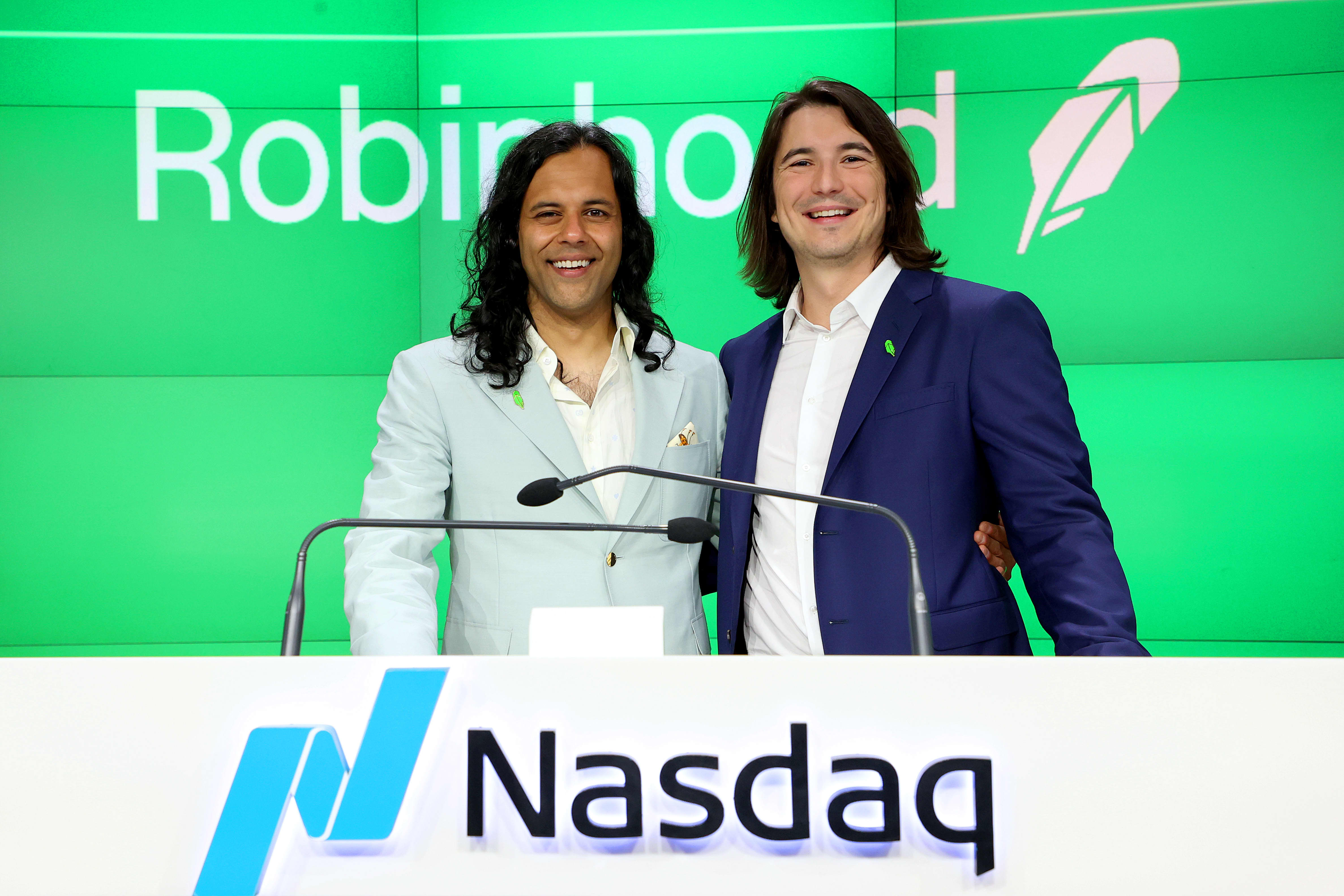Robinhood shares rally 5% on Friday after falling as much as 14% earlier

Baiju Bhatt and Vlad Tenev attend Robinhood Markets IPO Listing Day on July 29, 2021 in New York City.
Cindy Ord | Getty Images
Robinhood clawed back its major losses and gained on Friday as investors looked past disappointing guidance from the company and rallied around progress on new product developments.
Shares of the stock trading app climbed more than 5%, after dropping as much as 14.4% to $9.94 at their low of the day.
Loading chart…
The weak spots of Robinhood’s earnings report released Thursday after the bell were its first-quarter revenue guidance and its loss of monthly active users.
The newly public brokerage anticipates first-quarter revenue of less than $340 million, down 35% compared with 2021. Wall Street’s consensus estimate was for $448.2 million in revenue for the first quarter, according to FactSet. Plus, monthly active users fell to 17.3 million last quarter from 18.9 million in the third quarter. This number was also below estimates of 19.8 million, according to FactSet.
The major Wall Street firms kept their respective ratings on Robinhood following the results. However, several firms including Goldman Sachs, JPMorgan and Piper Sandler, lowered their 12-month price targets slightly for Robinhood. Barclays and Deutsche Bank also lowered their targets for the stock.
Most analysts were disappointed with the first quarter guidance but were hopeful about the launch of fully-paid securities lending, the crypto wallet and a top-line boost for monetary tightening.
“Robinhood has been on a tough road recently but we still see plenty to be excited about,” said Devin Ryan, analyst at JMP Securities. “We do think that investors buying the stock today must believe that Robinhood can diversify its business further beyond just a trading offering, but our confidence around that is actually higher heading out of results.”
Shares of Robinhood are trading around $11 per share on Friday, well below its IPO price of $38 from July.
— with reporting from CNBC’s Michael Bloom.




